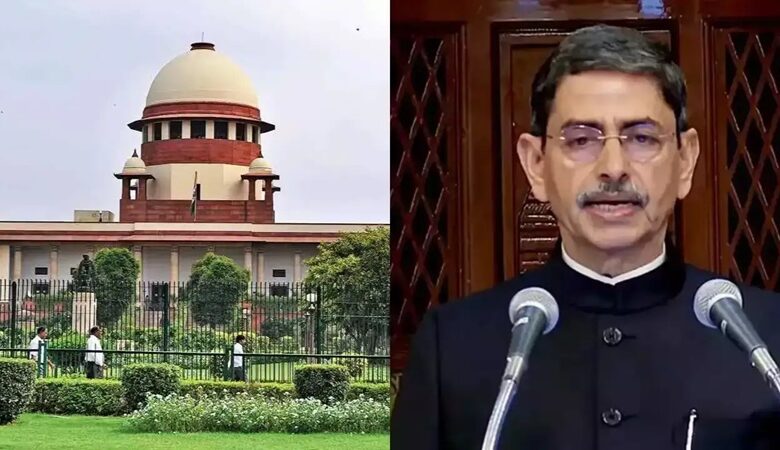Cannot sit on bills: Supreme Court criticizes Tamil Nadu Governor, approves 10 outstanding bills
News Mania Desk / Piyal Chatterjee / 8th April 2025

The Supreme Court reprimanded the Tamil Nadu Governor, stating that his extended inaction was “non-bonafide” and unconstitutional. Besides addressing the Tamil Nadu Governor, the Supreme Court also established a definitive constitutional timeline for Governors to respond to bills approved by state legislatures.
The Supreme Court additionally stated that the Governor lacks the power to delay bills indefinitely and is required to operate within the guidelines specified in Article 200 of the Constitution. The Supreme Court stated that the Governor must make a decision within three months, either to approve a bill, send it back to the House, or forward it to the President.
In Tamil Nadu, where 10 bills were awaiting approval, the Court noted they might be considered as having been approved due to the unconstitutional delay.
“The Constitution expects the Governor to act expeditiously. Undue delay violates the very spirit of democratic governance,” the Court said, adding that this move was necessary to “calm waters stirred by a high constitutional functionary.”
The Court categorically held that the “withholding of assent is not an independent or indefinite option”, and the “concepts of pocket veto or absolute veto do not exist in the Indian Constitution.” Any delay or inaction amounts to a constitutional breach.
While acknowledging that there are rare cases where the Governor can exercise discretion—such as when a bill may lead to public harm or involves matters requiring the President’s assent—the Court emphasised that Article 200 limits such discretion.
“There is no scope of inaction. The Governor is under a constitutional obligation to act,” the Court said, referring to Article 200 of the Constitution. Without following the due procedure laid out under this article, the Court remarked, “bills remain mere paper.”
Using emphatic wording, the Court emphasized that Governors are unable to hold up bills approved by the House. If a bill is returned to the legislature and re-approved, the Governor is required to agree to it—unless the bill has significant changes. After a bill is sent back and presented again, the Governor loses all veto authority.
Crucially, the Court emphasized that the Governor’s actions are not exempt from judicial review merely because the President’s assent is non-justiciable. Any deed or failure to act by the Governor must conform to the constitutional framework and democratic principles.
The Court additionally referenced the Governor’s oath of office, highlighting that it addresses the welfare of the citizens. A Governor, serving as the constitutional leader of the State, is responsible for upholding the interests and well-being of the citizens, rather than hindering the work of elected legislatures.
“When called upon to act, constitutional authorities must be guided by the spirit of the Constitution,” the bench observed. The judgment reinforces that arbitrary inaction can and will be judicially reviewed to protect democratic processes.






